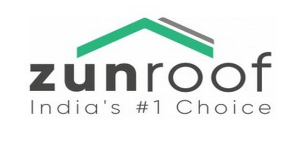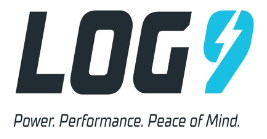Top 10 Cleantech Startups in India: Pioneering a Sustainable Future
India’s rapid industrial growth and urbanization have significantly impacted its environment, creating a pressing need for sustainable and clean technologies. Cleantech startups are at the forefront of addressing these challenges, innovating across various sectors such as renewable energy, waste management, water purification, and sustainable agriculture. Here’s a detailed look at the top 10 cleantech startups in India that are making a substantial impact.
1. ReNew Power:

| Aspect | Details |
|---|---|
| Founded | 2011 |
| Founder | Sumant Sinha |
| Headquarters | Gurugram, India |
| Industry | Renewable Energy |
| Services | Solar Power Generation, Wind Power Generation, Energy Storage Solutions |
| Key Products | Electricity Generation from Renewable Sources, Energy Storage Solutions |
| Market Presence | Operates across India with multiple renewable energy projects |
| Key Features | Large-scale Solar and Wind Farms, Energy Storage Projects, Power Purchase Agreements (PPAs) |
| Investors | Invested in by various entities including Goldman Sachs, Canada Pension Plan Investment Board, Abu Dhabi Investment Authority |
| Achievements | Largest renewable energy IPP (Independent Power Producer) in India, Significant contribution to India’s renewable energy goals |
| Challenges | Regulatory compliance, variability in energy production from renewable sources |
| Future Goals | Expand renewable energy portfolio, innovate in energy storage solutions, international expansion |
ReNew Power is a leading name in India’s renewable energy sector. It focuses on wind, solar, and hydro projects, aiming to provide sustainable energy solutions to reduce the country’s carbon footprint. With over 10 GW of clean energy assets, ReNew Power is instrumental in driving India’s transition to green energy.
2. Ather Energy:
| Aspect | Details |
|---|---|
| Founded | 2013 |
| Founders | Tarun Mehta, Swapnil Jain |
| Headquarters | Bangalore, India |
| Industry | Electric Vehicles |
| Products | Ather 450X, Ather 450 Plus |
| Services | Electric Scooters, Charging Infrastructure |
| Key Features | Smart Electric Scooters, Integrated Connectivity, Fast Charging |
| Manufacturing | Manufacturing facility in Hosur, Tamil Nadu |
| Investors | Invested in by Hero MotoCorp, Sachin Bansal, Tiger Global |
| Achievements | Introduced smart electric scooters in India, Built charging infrastructure |
| Challenges | Establishing charging network, Regulatory compliance |
| Future Goals | Expand product lineup, Increase market penetration, Enhance technology |
Ather Energy is revolutionizing the electric vehicle (EV) market in India with its smart, connected electric scooters. The company’s flagship products, Ather 450X and Ather 450 Plus, are known for their performance, design, and technology integration. Ather also invests in charging infrastructure, making EV adoption more accessible.
3. Ola Electric:

| Aspect | Details |
|---|---|
| Founded | 2017 |
| Founder | Bhavish Aggarwal |
| Headquarters | Bangalore, India |
| Industry | Electric Vehicles, Sustainable Mobility |
| Products | Ola S1 Electric Scooter, Ola S1 Pro Electric Scooter |
| Services | Electric Scooters, Battery Swapping Stations, Charging Infrastructure |
| Key Features | Smart Electric Scooters, Range of up to 181 km, Fast Charging |
| Manufacturing | Manufacturing facility in Tamil Nadu, India |
| Investors | Invested in by SoftBank, Tiger Global, Matrix Partners India |
| Achievements | Launch of affordable electric scooters, Establishment of charging network |
| Challenges | Scaling production, Regulatory compliance |
| Future Goals | Expand product lineup, Enhance battery technology, Build more infrastructure |
Ola Electric, a subsidiary of the ride-hailing giant Ola, is committed to building sustainable mobility solutions. The company’s focus is on developing electric scooters, charging networks, and battery-swapping stations. Ola Electric’s S1 and S1 Pro scooters are gaining popularity for their efficiency and affordability.
4. Carbon Clean Solutions:

| Aspect | Details |
|---|---|
| Founded | 2009 |
| Founders | Aniruddha Sharma, Prateek Bumb, Mudit Saxena |
| Headquarters | London, UK (with operations in India) |
| Industry | Clean Technology, Carbon Capture and Utilization |
| Services | Carbon Capture Technology, Engineering Services |
| Key Products | Carbon Capture Plants, CO2 Separation Technology |
| Market Presence | Operates globally with projects in various countries |
| Key Features | Low-cost Carbon Capture Solutions, Scalable Technology |
| Investors | Backed by Shell Ventures, Chevron Technology Ventures, WAVE Equity Partners |
| Achievements | Deployment of carbon capture projects, Innovations in CO2 separation |
| Challenges | Cost-effectiveness, Scaling technology for larger applications |
| Future Goals | Expand global footprint, Advance carbon capture technology, Commercialize solutions |
Carbon Clean Solutions specializes in carbon capture technology, offering solutions to industries for capturing and utilizing CO2 emissions. Their technology helps reduce the carbon footprint of industrial processes, making significant strides in combating climate change. The company has a global presence, with projects in Europe, the US, and Asia.
5. Agricool:

| Aspect | Details |
|---|---|
| Founded | 2015 |
| Founders | Guillaume Fourdinier, Gonzague Gru |
| Headquarters | Paris, France |
| Industry | Urban Agriculture, AgriTech |
| Products | Cooltainer® (Modular Farming Units), Fresh Fruits and Vegetables |
| Services | Sustainable Farming, Vertical Farming Technology |
| Key Features | Controlled Environment Agriculture, LED Lighting, Hydroponic Growing |
| Market Presence | Operates in France and expanding globally |
| Investors | Backed by Impact Investors and Venture Capitalists |
| Achievements | Innovative farming solutions, Local production of fresh produce |
| Challenges | Scalability, Cost-effectiveness of urban farming solutions |
| Future Goals | Expand operations internationally, Increase production capacity, Innovate in agricultural technology |
Agricool leverages advanced hydroponic farming techniques to grow fresh, pesticide-free produce in urban environments. Their indoor farms use 90% less water compared to traditional farming and produce yields that are 100 times higher per square meter. Agricool aims to make urban farming scalable and accessible.
6. ZunRoof:

| Aspect | Details |
|---|---|
| Founded | 2016 |
| Founders | Pranesh Chaudhary, Sushant Sachan |
| Headquarters | Gurgaon, India |
| Industry | Solar Energy, Renewable Energy |
| Products | Rooftop Solar Systems, Solar Panels, Solar Inverters |
| Services | Solar Installation, Solar Financing, Solar Maintenance |
| Key Features | Customized Solar Solutions, Monitoring Systems, Energy Efficiency |
| Market Presence | Operations across India, focusing on residential and commercial sectors |
| Investors | Backed by angel investors and strategic partners |
| Achievements | Installation of rooftop solar systems, Promotion of renewable energy |
| Challenges | Cost-effectiveness, Educating consumers about solar benefits |
| Future Goals | Expand market reach, Enhance technological capabilities, Increase adoption of solar energy |
ZunRoof provides innovative solar energy solutions for residential and commercial properties. The company uses data analytics and IoT to optimize solar installations, ensuring maximum efficiency and cost savings. ZunRoof’s user-friendly platform makes it easy for customers to monitor their energy production and consumption.
7. Chakr Innovation:

| Aspect | Details |
|---|---|
| Founded | 2016 |
| Founders | Arpit Dhupar, Kushagra Srivastava, Prateek Sachan |
| Headquarters | New Delhi, India |
| Industry | Environmental Technology, Clean Technology |
| Products | Chakr Shield (Air Pollution Control Device), Chakr Slingshot (Carbon Capture Technology) |
| Services | Air Pollution Control, Carbon Capture Solutions |
| Key Features | Retrofitting Diesel Generators, Carbon Capture from Diesel Exhaust |
| Market Presence | Deployments in India and expanding globally |
| Investors | Backed by various investors including Sequoia Capital, IAN Fund |
| Achievements | Significant reduction in particulate matter emissions, Innovative clean technology solutions |
| Challenges | Scalability of technology, Regulatory compliance |
| Future Goals | Expand product offerings, Enhance technology scalability, Address global environmental challenges |
Chakr Innovation has developed a unique technology to reduce air pollution from diesel generators. Their device, Chakr Shield, captures up to 90% of particulate matter emissions and converts it into ink and paints. This innovative approach not only reduces pollution but also creates a sustainable product from waste.
8. Log 9 Materials:

| Aspect | Details |
|---|---|
| Founded | 2015 |
| Founders | Akshay Singhal, Kartik Hajela |
| Headquarters | Bengaluru, India |
| Industry | Nanotechnology, Clean Technology |
| Products | Graphene-based Products, Energy Storage Solutions |
| Services | Nanotechnology Applications, Research and Development |
| Key Products | Log 9 Graphene Battery, Graphene Oxide |
| Market Presence | Operates globally, with a focus on applications in energy and environment |
| Investors | Backed by investors including Exfinity Venture Partners, Sequoia Capital India, Metaform Ventures |
| Achievements | Development of graphene-based technologies, Innovations in energy storage |
| Challenges | Scaling production, Market adoption of graphene-based solutions |
| Future Goals | Expand product portfolio, Advance nanotechnology applications, Enter new markets |
Log 9 Materials focuses on nanotechnology and advanced materials to create innovative solutions for energy storage and filtration. Their flagship product, the Rapid Charging Battery (RCB), charges 9 times faster than conventional batteries, offering a significant advantage for electric vehicles and renewable energy storage.
9. Gegadyne Energy:

| Aspect | Details |
|---|---|
| Founded | 2015 |
| Founders | Jubin Varghese, Ameya Gadiwan |
| Headquarters | Mumbai, India |
| Industry | Energy Storage, Battery Technology |
| Products | Gegadyne Energy Storage Solutions, Fast Charging Batteries |
| Services | Research and Development in Battery Technology, Energy Storage Solutions |
| Key Products | Fast Charging Batteries, Lithium-ion Battery Technology |
| Market Presence | Operates in India with plans for global expansion |
| Investors | Backed by investors and strategic partners |
| Achievements | Development of fast-charging battery technology, Innovations in energy storage |
| Challenges | Scaling production, Market adoption of new battery technologies |
| Future Goals | Expand product offerings, Enhance battery technology, Enter international markets |
Gegadyne Energy is developing non-lithium-based battery technology that offers faster charging times and longer life cycles. Their proprietary battery technology aims to revolutionize the energy storage market, making it more sustainable and efficient. Gegadyne’s batteries are particularly beneficial for electric vehicles and grid storage solutions.
10. Smarter Dharma:

| Aspect | Description |
|---|---|
| Company Name | Smarter Dharma |
| Founded | 2012 |
| Location | Bangalore |
| Services Offered | Sustainability consulting services for businesses |
| Mission Statement | To empower businesses to achieve environmental sustainability and profitability through innovative solutions. |
| Target Audience | Businesses across various industries seeking to enhance their sustainability practices. |
| Core Services | – Waste management solutions – Water conservation strategies – Green building consulting |
| Holistic Approach | Integrated solutions that balance environmental impact reduction with financial viability. |
| Value Proposition | Expert guidance in implementing eco-friendly practices to achieve sustainability goals while maintaining profitability. |
| Technology Integration | Utilization of advanced technologies for efficient waste management and energy conservation. |
| Client Benefits | – Reduced environmental footprint – Cost savings through efficient resource management – Enhanced corporate social responsibility (CSR) |
| Consulting Process | – Initial assessment and goal setting – Customized action plans – Implementation support and monitoring |
| Case Studies | Examples of successful projects showcasing significant environmental and financial improvements. |
| Partnerships | Collaborations with green technology providers, regulatory bodies, and industry experts. |
| Marketing Strategy | Educational content on sustainability benefits, case studies, client testimonials, and thought leadership articles. |
| Expansion Plans | Geographic expansion into new markets, introduction of new sustainability service offerings. |
Smarter Dharma provides sustainability consulting services to businesses, helping them implement eco-friendly practices and achieve sustainability goals. Their services include waste management, water conservation, and green building solutions. Smarter Dharma’s holistic approach assists organizations in reducing their environmental impact while maintaining profitability.
Frequently asked questions (FAQs) about cleantech in India
1. What is cleantech?
Answer: Cleantech, short for “clean technology,” refers to products, services, or processes that use renewable materials, reduce emissions, minimize waste, or conserve natural resources. It encompasses various sectors such as renewable energy, water purification, waste management, sustainable agriculture, and more.
2. Why is cleantech important?
Answer: Cleantech is crucial for addressing environmental challenges such as climate change, pollution, and resource depletion. By promoting sustainable practices and technologies, cleantech helps reduce greenhouse gas emissions, improve air and water quality, and conserve natural resources, leading to a cleaner and healthier planet.
3. What are the benefits of investing in cleantech startups?
Answer: Investing in cleantech startups offers several benefits, including:
- Potential for high returns on investment as the cleantech market grows.
- Contribution to environmental sustainability and addressing climate change.
- Opportunities for innovation and technological advancement.
- Job creation and economic growth in the green economy.
4. How can individuals support cleantech initiatives?
Answer: Individuals can support cleantech initiatives by:
- Adopting sustainable practices in their daily lives, such as reducing energy consumption, recycling, and using eco-friendly products.
- Investing in renewable energy sources like solar panels for their homes.
- Advocating for policies that promote cleantech innovation and sustainability.
- Supporting cleantech startups through crowdfunding or purchasing their products and services.
5. What are some challenges faced by cleantech startups?
Answer: Cleantech startups may encounter challenges such as:
- High initial capital costs for research, development, and infrastructure.
- Regulatory hurdles and policy uncertainties.
- Competition from traditional, established industries.
- Limited access to funding and investment.
- Technological barriers and scalability issues.
6. How can governments support the growth of cleantech?
Answer: Governments can support cleantech growth by:
- Implementing policies and regulations that incentivize clean energy adoption and sustainable practices.
- Providing funding, grants, and tax incentives for cleantech research, development, and deployment.
- Investing in infrastructure for renewable energy, electric mobility, and sustainable transportation.
- Facilitating partnerships between cleantech startups, research institutions, and industry stakeholders.
- Raising awareness about the importance of cleantech and promoting public-private collaboration.
7. What are some promising trends in the cleantech industry?
Answer: Some promising trends in the cleantech industry include:
- Advancements in renewable energy technologies, such as solar panels, wind turbines, and energy storage solutions.
- Innovation in electric mobility, including electric vehicles (EVs), charging infrastructure, and battery technology.
- Development of smart grid technologies for efficient energy management and distribution.
- Expansion of sustainable agriculture practices, such as vertical farming, hydroponics, and precision agriculture.
- Integration of artificial intelligence (AI) and Internet of Things (IoT) for optimizing resource usage and reducing environmental impact.
Conclusion:
India’s cleantech startup ecosystem is vibrant and rapidly evolving, driven by the urgent need for sustainable solutions. These startups are not only addressing critical environmental issues but also paving the way for a greener and more sustainable future. With continued innovation and support, these companies have the potential to significantly impact India’s sustainability landscape and contribute to global environmental goals.
Last Updated on: Sunday, June 23, 2024 6:48 pm by News Estate Team | Published by: News Estate Team on Monday, June 10, 2024 5:00 pm | News Categories: Trending, Startup
